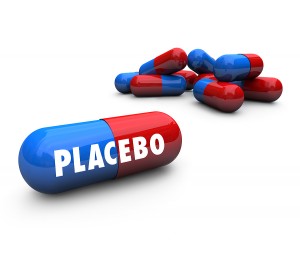Research: Could studying the placebo effect change the way we think about medicine?
 The Power of Nothing: Could studying the placebo effect change the way we think about medicine? (The New Yorker):
The Power of Nothing: Could studying the placebo effect change the way we think about medicine? (The New Yorker):
“For years, Ted Kaptchuk performed acupuncture at a tiny clinic in Cambridge, a few miles from his current office, at the Harvard Medical School. He opened for business in 1976, having just returned from Asia, where he had spent four years honing his craft. Not long after he arrived in Boston, he treated an Armenian woman for chronic bronchitis. A few weeks later, the woman returned with her husband and told Kaptchuk that he had “cured” her.”“It had to be some kind of placebo,” Kaptchuk stated. “I’ve always believed there is an important component of medicine that involves suggestion, ritual, and belief.” This year, Harvard created an institute dedicated wholly to the study of placebos, the Program in Placebo Studies and the Therapeutic Encounter. It is based at the Beth Israel Deaconess Medical Center and Kaptchuk was named its director.”
Link to Study: Placebo interventions for all clinical conditions (PubMed)
Abstract:
- BACKGROUND: Placebo interventions are often claimed to substantially improve patient-reported and observer-reported outcomes in many clinical conditions, but most reports on effects of placebos are based on studies that have not randomised patients to placebo or no treatment. Two previous versions of this review from 2001 and 2004 found that placebo interventions in general did not have clinically important effects, but that there were possible beneficial effects on patient-reported outcomes, especially pain. Since then several relevant trials have been published.
- OBJECTIVES: Our primary aims were to assess the effect of placebo interventions in general across all clinical conditions, and to investigate the effects of placebo interventions on specific clinical conditions. Our secondary aims were to assess whether the effect of placebo treatments differed for patient-reported and observer-reported outcomes, and to explore other reasons for variations in effect.
- AUTHORS’ CONCLUSIONS: We did not find that placebo interventions have important clinical effects in general. However, in certain settings placebo interventions can influence patient-reported outcomes, especially pain and nausea, though it is difficult to distinguish patient-reported effects of placebo from biased reporting. The effect on pain varied, even among trials with low risk of bias, from negligible to clinically important. Variations in the effect of placebo were partly explained by variations in how trials were conducted and how patients were informed.
To learn more: read Mind Hacks and the Placebo Effect.
Source of pic: BigStockPhoto



I’ve always wondered if the placebo effect could be used to actually treat illnesses. It really does seem that in some cases, the belief that you will get better actually aids in ones recovery.
It really comes down to how you define recovery. Has a person recovered when they feel better, or when their body has actually repaired itself?
It also depends on how you define “illness” and “treatment”. I’d say “treatment” means a durable recovery and solution of the root problem, so placebos shouldn’t be seen as a treatment — they should be seen as (powerful) enhancers/ accelerators of evidence-based treatments.